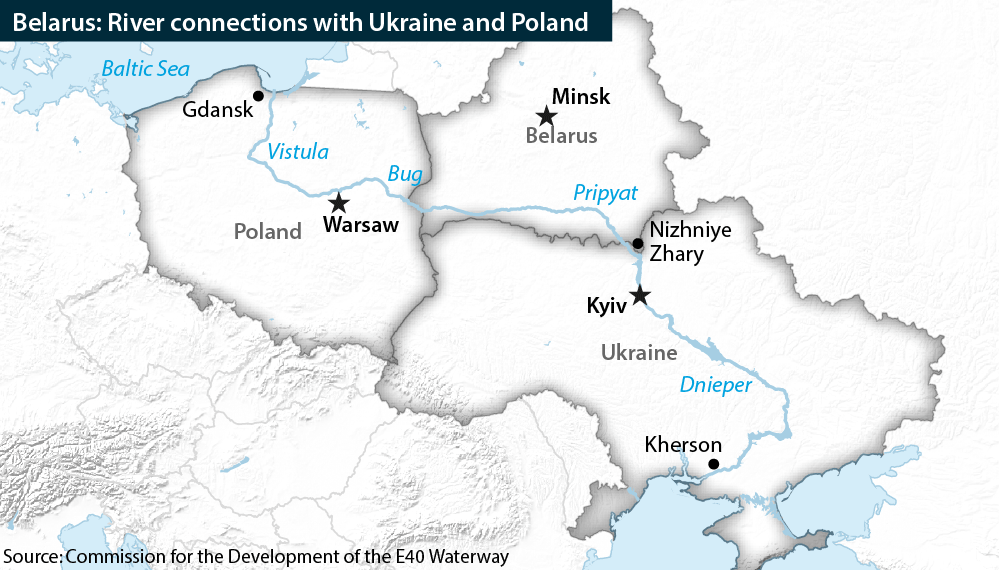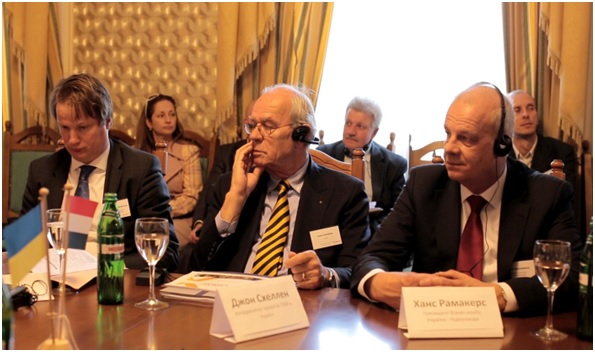Signing the Association Agreement with the European Union was a true breakthrough. The agreement was two-part—the political segment was signed in March 2014 and the economic in June of the same year. It was the ousted president Viktor Yanukovych's refusal to accept the original agreement that sparked the Euromaidan Revolution and led to his fleeing the country in disgrace.
Since that time, government talks about Eurointegration have faded to the point where politicians have stopped relaying any indicators of progress. With the spring elections approaching fast, it would seem they prefer to echo populist sentiments, rather than provide facts that may not reflect well on progress, nor on them. Regardless, it is important to remember that non-partisan representatives of civil society regularly monitor implementation and take note of tangible results.
Although the true headway in Ukraine’s Eurointegration, regarding the Association Agreement, cannot be called a breakthrough right now, at the same time it is not a total failure. Both the European Commission and the Ukrainian government have reported some degree of favour, year-over-year, on Ukraine’s progress in implementing the agreement’s provisions. Recently, the commission published its 2018 Annual Report.
The European Commission's conclusions
Serhiy Sydorenko, chief editor of European Pravda, compares the commission’s 2018 report to previous years. He notes it contains more concerns than commendations for Ukraine. Moreover, he contends that these commendations are not directly related to the Association Agreement, such as the need for decentralization reform. However, he fails to point out that reforms related to a key area of the agreement—trade and related matters, have made progress. In the first of two of the most successful blocks—food safety—17 out of 250 EU bylaws were, in fact, adopted. In the second—intellectual property—the majority of bills are awaiting approval by the parliament.
Sydorenko emphasizes that unlike the report of the previous year, the 2018 introduction does not affirm that Ukraine is heading in the right direction, despite the slow pace: “This is an important change of the emphasis and it has a very simple explanation. Europeans see clearly the attempts to move back some key reforms,” he says, citing a populist bill put forward by their representative Oleh Liashko: “Pay to a Ukrainian, buy Ukrainian.” The Liashko bill is also mentioned in the report of the Euro Commission.
The conclusions of civil society
In December 2018, the Ukrainian Center for European Policy presented the results of their monitoring efforts. It reported progress during the previous year as well as that of the entire four-year process of implementation. However, their findings were also critical of Ukraine:
“We evaluate not the whole agreement, but the obligations which have strict deadlines. We do it in a harsh way. We are not interested in who was not working [well]. We as ordinary citizens are interested in working [within the] field of transplantation, so we will not have to go abroad for a surgery; [for] cars to be inspected, so they will not fall apart on the roads; [for] drinking tap water without being afraid for our health. The work has been done in all the directions. The question is in which of them it has been completed,” said Liubov Akulenko, executive director of the Ukrainian Center for European Policy on December 13 in Kyiv during the presentation of the report of her organization on the implementation of the Association Agreement.
According to the center, during the last year the government increased the dynamics of the agreement implementation from 11% to 21%. However, when taking into account the entire period of 1 November 2014 to 1 November 2018, the progress of implementation has been 24%.
In the field of public procurement, two state institutions have been established to effect policy. Standards have been set for the regulation of state contracts, and measures have been introduced to establish regulations for the purchase of water, energy, transport, and postal services.
- All the required “Horizontal Legislation” (basic safety guidelines for industrial products) and almost all the required “Vertical Legislation” (for example; regarding machines and mechanisms) has been passed in the area of technical barriers.
- In the area of tax, Ukraine is now in compliance with the European model, regarding the general conditions of excise duty as well as the structure and rates of excise duty on tobacco products.
- Ukrainian legislation has been changed in corporate financial accounting.
- Consumer protection rights for prices of goods have been established; legislation is underway regarding goods that are mispresented in their appearance, and/or pose a threat to consumer health and safety; and means to ensure magnetic toys provide warnings about health and safety risks are underway.
The center also marks some progress in the fields of energy, transport, social policy and environment. The most complicated areas are those of establishing entrepreneurial activity; business services and e-commerce; public health; and customs and trade facilitation.
Critics and challenges
Taras Kachka, advisor to the minister of foreign affairs, is confident that so far the EU does not see opportunities for integration of Ukraine into the inner market of the EU. To illustrate his point, he cites the postponement of the Agreements on Conformity Assessment and Acceptance of Industrial Goods (ACAA), the main point of which is the mutual recognition of product requirements:
“Ukraine has successfully [gone] through all the circles of probation with food products. It went through changes of legislation and had its governmental bodies and other enterprises inspected by the EU, went through all the procedures within the EU. So now we annoy our competitors with volumes of chicken and oils exports on the EU market. However, there is trouble with industrial products,” he says.
He adds that during the last years, Ukraine has reported on technical regulation a number of times, regarding compliance of legislation to that of the EU. However, despite meeting all the preconditions, the agreement has not yet been reached.
Kachka sees a major problem among political administrators of Ukraine who lack understanding of the importance of the agreement.
According to Kachka, the areas Ukraine sees as most important are energy, the digital market, customs and Schengen (post-visa cooperation). This is not to say that these areas do not also have challenges.
Hugues Mingarelli, EU Ambassador to Ukraine, is more optimistic regarding Ukraine’s EU integration.
While presenting the report of the Ukrainian Center for European Policy, he stressed the importance of cooperation between government, parliament, business and civil society. At the same time, he added that the significance of the Association Agreement should be well communicated to ordinary citizens—without their support implementation would be far more difficult.
Svitlana Zalishchuk, MP and a member of the inter-factional group European Optimists, mentioned other challenges. She drew attention to the institutional differences between Ukraine and its Eastern European partners. Many institutional groups in Poland, the Czech Republic, Slovakia and other countries had a clear perspective on membership which in turn was an incentive for their governments to implement change. “We don’t have it, so it slows down the pace of the Eurointegration,” she said.
Among other challenges, the MP named hidden interests that often hamper progress. Lobbying within parliament committees is a problem, as is the non-cooperation between various state institutions in promoting a common agenda.
“It would be great if at the beginning of the year [the] Prime Minister would say that this year 50 laws should be adopted. And the speaker would know that these 50 laws are the priority. If other laws appear they would be secondary. So far our parliament is like a printer of laws.”
Her final message was a positive one. In referring to the opinion poll on Eurointegration, she read the mood of the population for the upcoming elections clearly. Ukraine’s future would be pro-European and any force that came to power would not be able to change it.





